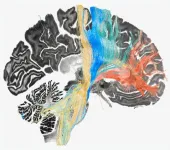(Press-News.org) A large language model (LLM) artificial intelligence (AI) system can match, or in some cases outperform, human ophthalmologists in the diagnosis and treatment of patients with glaucoma and retina disease, according to research from New York Eye and Ear Infirmary of Mount Sinai (NYEE).
The provocative study, published February 22, in JAMA Ophthalmology, suggests that advanced AI tools, which are trained on vast amounts of data, text, and images, could play an important role in providing decision-making support to ophthalmologists in the diagnosis and management of cases involving glaucoma and retina disorders, which afflict millions of patients.
The study matched the knowledge of ophthalmic specialists against the capabilities of the latest generation AI system, GPT-4 (Generative Pre-Training–Model 4) from OpenAI, designed to replicate human-level performance. Within medicine, sophisticated AI tools are seen as potentially revolutionizing diagnosis and treatment tools through the accuracy and comprehensiveness of their LLM-generated responses. Ophthalmology, with its high volume of often complex patients, could be a particularly fertile field for AI, giving specialists more time to practice evidence-based medicine.
“The performance of GPT-4 in our study was quite eye-opening,” says Andy Huang, MD, an ophthalmology resident at NYEE, and lead author of the study. “We recognized the enormous potential of this AI system from the moment we started testing it and were fascinated to observe that GPT-4 could not only assist but in some cases match or exceed, the expertise of seasoned ophthalmic specialists.”
For the human side of its study, the Mount Sinai team recruited 12 attending specialists and three senior trainees from the Department of Ophthalmology at the Icahn School of Medicine at Mount Sinai. A basic set of 20 questions (10 each for glaucoma and retina) from the American Academy of Ophthalmology’s list of commonly asked questions by patients was randomly selected, along with 20 deidentified patient cases culled from Mount Sinai-affiliated eye clinics. Responses from both the GPT-4/AI system and human specialists were then statistically analyzed and rated for accuracy and thoroughness using a Likert scale, which is commonly used in clinical research to score responses.
The results showed that AI matched or outperformed human specialists in both accuracy and completeness of its medical advice and assessments. More specifically, AI demonstrated superior performance in response to glaucoma questions and case-management advice, while reflecting a more balanced outcome in retina questions, where AI matched humans in accuracy but exceeded them in completeness.
“AI was particularly surprising in its proficiency in handling both glaucoma and retina patient cases, matching the accuracy and completeness of diagnoses and treatment suggestions made by human doctors in a clinical note format,” says Louis R. Pasquale, MD, FARVO, Deputy Chair for Ophthalmology Research for the Department of Ophthalmology, and senior author of the study. “Just as the AI application Grammarly can teach us how to be better writers, GPT-4 can give us valuable guidance on how to be better clinicians, especially in terms of how we document findings of patient exams.”
While emphasizing that additional testing is needed, Dr. Huang believes this work points to a promising future for AI in ophthalmology. “It could serve as a reliable assistant to eye specialists by providing diagnostic support and potentially easing their workload, especially in complex cases or areas of high patient volume,” he explains. “For patients, the integration of AI into mainstream ophthalmic practice could result in quicker access to expert advice, coupled with more informed decision-making to guide their treatment.”
About the Mount Sinai Health System
The Mount Sinai Health System is New York City's largest academic medical system, encompassing eight hospitals, a leading medical school, and a vast network of ambulatory practices throughout the greater New York region. Mount Sinai is a national and international source of unrivaled education, translational research and discovery, and collaborative clinical leadership ensuring that we deliver the highest quality care—from prevention to treatment of the most serious and complex human diseases. The Health System includes more than 7,200 physicians and features a robust and continually expanding network of multispecialty services, including more than 400 ambulatory practice locations throughout the five boroughs of New York City, Westchester, and Long Island. The Mount Sinai Hospital is ranked No. 14 on U.S. News & World Report's "Honor Roll" of the Top 20 Best Hospitals in the country and the Icahn School of Medicine as one of the Top 20 Best Medical Schools in country. Mount Sinai Health System hospitals are consistently ranked regionally by specialty and our physicians in the top 1% of all physicians nationally by U.S. News & World Report.
For more information, visit https://www.mountsinai.org or find Mount Sinai on Facebook, Twitter and YouTube.
###
END
Artificial intelligence matches or outperforms human specialists in retina and glaucoma management, Mount Sinai study finds
2024-02-22
ELSE PRESS RELEASES FROM THIS DATE:
A third of trans masculine individuals on testosterone ovulate
2024-02-22
"Trans masculine people are people born female but do not identify as such, for example they feel male, gender fluid or non-binary. Our examination of their ovarian tissue shows that 33% of them show signs of recent ovulation, despite being on testosterone and no longer menstruating," says Joyce Asseler, PhD candidate at Amsterdam UMC.
Trans masculine people often use hormone treatment with testosterone to masculinize physically. This hormone usually stops them from menstruating. In that ...
Researchers use deep brain stimulation to map therapeutic targets for four brain disorders
2024-02-22
A new study led by investigators from Mass General Brigham demonstrated the use of deep brain stimulation (DBS) to map a ‘human dysfunctome’ — a collection of dysfunctional brain circuits associated with different disorders. The team identified optimal networks to target in the frontal cortex that could be used for treating Parkinson’s disease, dystonia, obsessive compulsive disorder (OCD) and Tourette's syndrome. Their results are published in Nature Neuroscience.
“We were able to use brain stimulation to precisely identify and target circuits for the optimal treatment of four different ...
Undiagnosed cancer cases in the US during the first 10 months of the pandemic
2024-02-22
About The Study: This study found that all-sites cancer incidence in the U.S. was significantly lower than expected in March through December 2020, with 134,395 potentially undiagnosed cancer cases. The overall and differential findings can be used to inform where the health care system should be looking to make up ground in cancer screening and detection.
Authors: Krystle A. Lang Kuhs, Ph.D., M.P.H., of the University of Kentucky in Lexington, is the corresponding author.
To access the embargoed study: Visit our For The Media website at this link https://media.jamanetwork.com/
(doi:10.1001/jamaoncol.2023.6969)
Editor’s ...
Uncorrected refractive error in the African American eye disease study
2024-02-22
About The Study: The results of this study suggest a high burden of refractive error–associated correctable refractive error in African American adults, making it the leading cause of visual impairment in this population. Providing universal coverage for vision care and prescription glasses is an affordable and achievable health care intervention that could reduce the burden of visual impairment in African American adults by over two-thirds and likely raise the quality of life and work productivity, ...
Vision impairment and psychosocial function in older adults
2024-02-22
About The Study: Vision impairment was associated with several psychosocial outcomes, including symptoms of depression and anxiety and social isolation in this study including 2,822 U.S. adults age 65 and older. These findings provide evidence to support prioritizing research aimed at enhancing the health and inclusion of people with vision impairment.
Authors: Pradeep Y. Ramulu, M.D., M.H.S., Ph.D., of the Johns Hopkins University School of Medicine in Baltimore, is the corresponding author.
To access the embargoed ...
Chronic stress spreads cancer … here’s how
2024-02-22
Stress is inevitable. But too much of it can be terrible for our health. Chronic stress can increase our risk for heart disease and strokes. It may also help cancer spread. How this works has remained a mystery—a challenge for cancer care.
Xue-Yan He, a former postdoc in Cold Spring Harbor Laboratory (CSHL) Adjunct Professor Mikala Egeblad’s lab, says, “Stress is something we cannot really avoid in cancer patients. You can imagine if you are diagnosed, you cannot stop thinking about the disease or insurance ...
Markey study reveals extent of undiagnosed cancer cases due to COVID-19 pandemic
2024-02-22
Over 134,000 cancer cases went undiagnosed in the U.S. during the first 10 months of the COVID-19 pandemic, according to a new University of Kentucky Markey Cancer Center study.
The report published in JAMA Oncology Feb. 22 provides the first estimates of missed cancer diagnoses in 2020 using nationwide surveillance data.
Researchers have expected impacts to cancer detection as a result of delayed screenings and missed health care appointments due to the COVID-19 pandemic, but the extent of this impact had not been quantified until ...
NextGen Precision Health researchers uncover potential treatment for cardiovascular complications from type 2 diabetes
2024-02-22
New research at the Roy Blunt NextGen Precision Health building has discovered a potential treatment for an underlying cause of cardiovascular disease in people with Type 2 diabetes.
More than 30 million Americans live with Type 2 diabetes. One common feature of diabetes is the hardening and inflexibility of blood vessels caused by damage to the endothelial cells in the vascular system. Over time, this can lead to the development and progression of cardiovascular disease, which is the number one cause of death in diabetics. Because endothelial dysfunction is causally linked to cardiovascular disease, there is a considerable ...
Immune cell receptor provides promising immunotherapy target
2024-02-22
FOR IMMEDIATE RELEASE
Drugs that target a receptor on immune cells called activin receptor 1C may combat tumor-induced immune suppression and help patients’ immune systems fight back against cancer, according to a study by investigators at the Johns Hopkins Kimmel Cancer Center and its Bloomberg~Kimmel Institute for Cancer Immunotherapy.
The study, published online Jan. 8 in Oncoimmunology, identifies a new strategy cancer cells use to protect themselves from immune system attack, and suggests treatments that could counteract it. It shows that tumor cells and some immune cells produce proteins called activins that ...
Silicon microresonators for artificial neural networks
2024-02-22
Researchers have made significant progress in the development of artificial neural networks using tiny silicon devices called microresonators, paving the way for faster and more energy-efficient artificial intelligence systems. These networks mimic the computing capabilities of the human brain, breaking away from traditional digital computer architectures and leveraging the speed, low power dissipation and multi-wavelength capabilities of photonics.
A review article describing the implementations of neural networks using silicon microresonators was published Jan. 16 in Intelligent Computing, a Science Partner Journal.
Silicon microresonators ...

